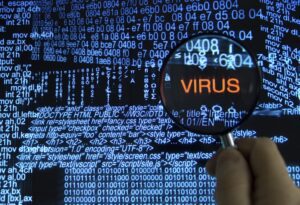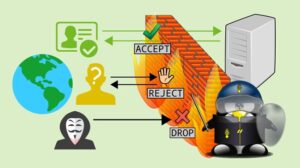Ransomware, one of many computer viruses, but how do you protect yourself?
There are many and they are scary. We are talking about ransomware and all the other computer viruses that attack our devices and data every day. Computer viruses are of various types, but how do you protect yourself from them?
First of all, it is essential to know them if we want to prevent and avoid them.
What are computer viruses? 
A computer virus is nothing more than software. Exactly, an application that performs functions just like the ones we use every day. The typical function of a computer virus is to "get installed" or "download" into an electronic device and then act autonomously and covertly.
In fact, the computer virus is often anticipated by a small software which then downloads the various parts of the complete software. The result is an application that performs functions without the user's knowledge, deleting files, blocking them, sending them to certain recipients and trying to replicate on other devices.
The computer virus is very similar in operation to that which it shares and from which it took its name, the biological one.
The technical name of the computer virus category is Malware, a compound word combining "malicious" and "software".
 Ransomware and its brothers
Ransomware and its brothers
There are different types of computer viruses. These differ in the type of problem they trigger and the outcomes thereof.
Here are the most common types of computer viruses:
Ransomware
This is malware that blocks and takes the device and its contents hostage. Access to it is blocked and a sum of money (usually in cryptocurrency) is requested to unlock it. The word Ransom in fact means ransom.
Trojan
A name of evident Homeric inspiration, a Trojan is quite simply software that is disguised as something not dangerous or useful.
The purpose of the Trojan is to "be launched" by the user, and then launch malware which silently begins to take control of the computer and spread across the network.
Spyware
The function of this malware is to collect the data of the unfortunate people who use the infected PC. It is software that spies on every keystroke and application with the aim of copying information, login data, passwords and other sensitive information.
Given its function, spyware is the most difficult malware to "discover" as it is created to remain undetected but functional and dangerous for as long as possible.
Adware
Ad is the acronym for Advertising. The purpose of this software is precisely that, to show very annoying unsolicited advertisements. Pop-ups, advertising bars, homepage and search engine replacement. Adware actions are many. Some also have spyware functionality, aiming to collect data and display relevant advertisements.
Worms
The worm "incubates" in the PC of origin and then spreads like wildfire and replicates on other computers on a network. The worm remains silent for a certain time, in order to "self-replicate" in a widespread manner and then act when it is completely rooted on the network.
Who creates computer viruses? 
The common imagination thinks that computer viruses are produced by those who also produce antiviruses. Many people think that hackers build viruses. What is true is that computer viruses are built by programmers, defined as cyber criminals. The aim, in almost all cases, is to make money directly (as with ransomware) or indirectly (as with adware or spyware).
Only in rare cases are the creators of viruses specialized companies, which usually illegally create this software which copies data or blocks certain applications.
What damage can they cause?
Since they are software, computer viruses usually damage operating systems, software and their functionality. In a marginal and indirect way, computer viruses can also damage hardware, especially by acting on the controls of the cooling systems or on the CPU update frequency.
At the software level, viruses can slow down software functionality. They can block communication, show invasive advertisements and in the case of ransomware even block the machine or some software. The "victims" are usually management or certain folders that will only be released in exchange for a ransom.
 How do you protect yourself from computer viruses (ransomware and others)?
How do you protect yourself from computer viruses (ransomware and others)?
There are software and hardware solutions that can help protect you from malware.
Before external solutions, however, the first factors for protecting yourself from viruses are computer skills and knowledge, at least basic.
Knowing how to behave when surfing the net, when you receive attachments and strange emails is in fact fundamental, a minimal skill but which is often sufficient to avoid many problems.
Above all, it is better not to click when you are not sure of the source of the attachment, "avoiding accepting candy from strangers".
Added to common sense are software solutions that can help protect against computer viruses.
There are usually three programs or rather, three types of applications, which by acting on different cases can help us in the fight against viruses. Here they are:
Antivirus
It is a software which, acting in different ways, aims to identify and isolate suspected viruses when they try to enter the system. These software detect and block or quarantine the potentially dangerous application. They then do not allow its execution or allow it only in a limited environment called "sandbox".
Antivirus is based on "widespread knowledge", which is why it is therefore essential to frequently update the antivirus itself and the virus definitions.
Anti malware
They are specific types of antivirus, whose main function is to protect against adware and spyware. Malware can be always running or be specifically executed by the user.
In this second case they are also known as Scanners and can also be online.
Firewalls 
As can be seen from the name (wall of fire), the main function of the firewall is to control everything that comes in or out. The firewall can be installed on a single PC or on a network server to separate the "secure" internal environment (the internal company network) from the web.
The firewall can also be organized through specific lists of websites and words that are always blocked (blacklist) or always allowed (whitelist).
These three software can be installed individually or through sets of programs. These sets are known as “security suites”. Sets that combine these three applications in a single tool, protecting the user from ransomware and other threats.







